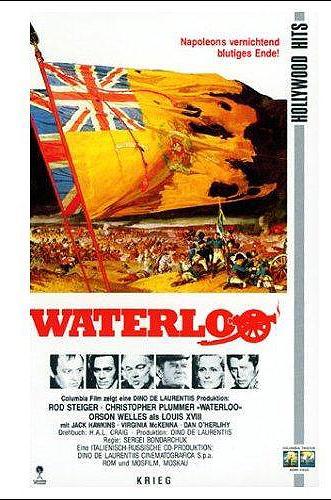Waterloo

The film begins with Napoleon's forced abdication in 1814, after the battle of Leipzig. As the British contribution there was confined to one rocket artillery battery, to say (as the film does) that British forces were involved in Napoleon's defeat is rather to overstate the case. We next see Bonaparte landing in the south of France, having escaped from Elba with his vestigial army of the Imperial Guard. The confrontation between Bonaparte and the 5th Regiment of the Line and the return of Marshal Ney to his old allegiance are combined into one incident. (Ney actually appeared four days later, after Napoleon had left Grenoble, so Napoleon's offer to 'show Ney's red head' to the crowd could not have happened.) In Paris, Louis XVIII is shown departing, although Orson Welles' brilliant portrayal of the Bourbon king is rather more sympathetic than Louis deserved. The film rapidly moves to the duchess of Richmond's ball in Brussels on the night of 15 June, when the (incorrect) impression given is that this is the first knowledge Wellington has of the French advance across the border – knowledge imparted by John Savident (better known as Fred Elliot in Coronation Street) portraying the Prussian General Muffling. Scant attention is paid to Ligny where Napoleon attacked the Prussians on 16 June, and Quatre Bras where Ney took on the Anglo-Dutch. However, the point is made that the Prussian commander Blücher is determined to stand by his promise to support Wellington.